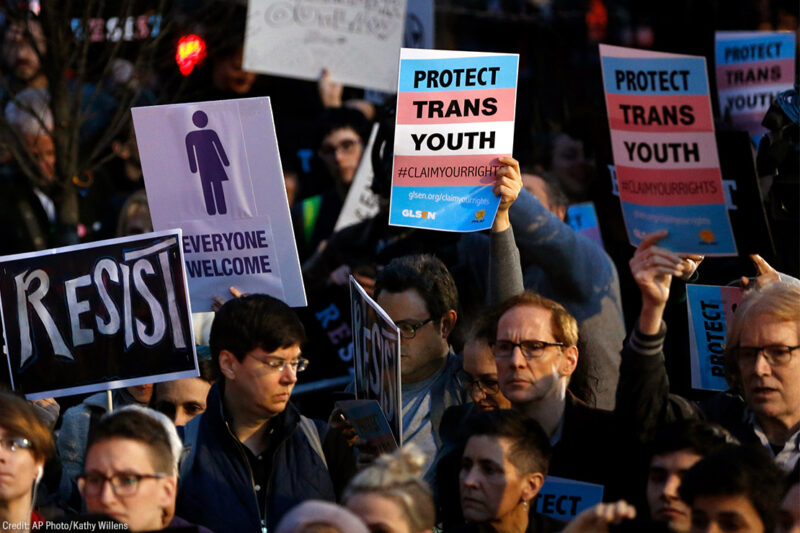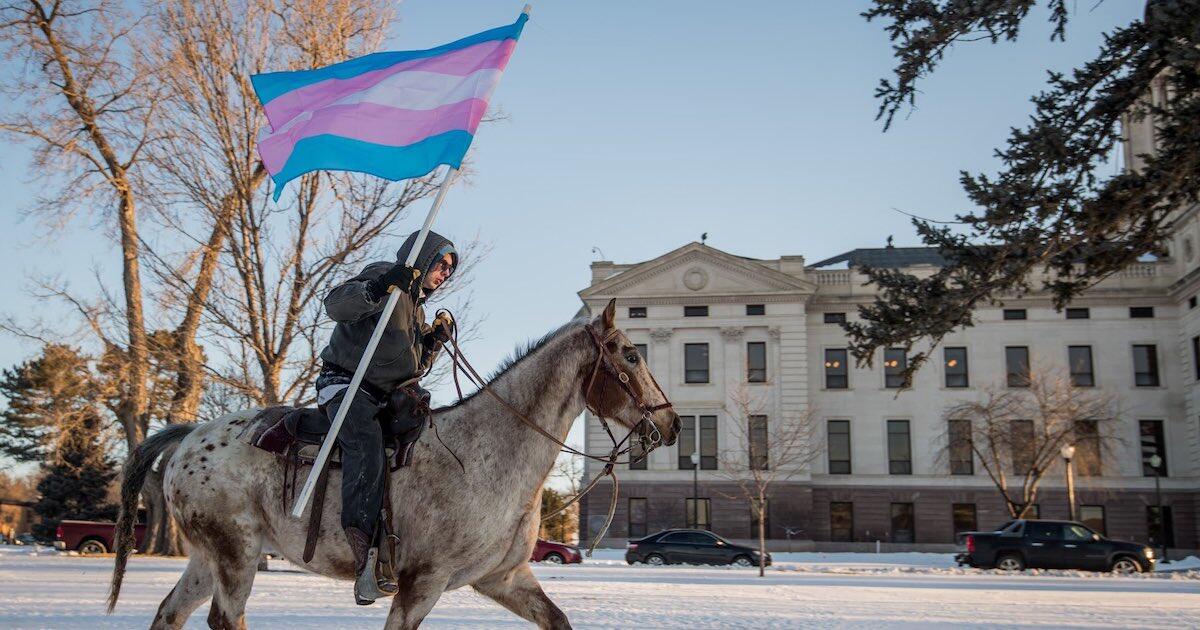Lawmakers Playing Politics with Trans Kids’ Lives at the Start of the Decade


We’re just days into the first state legislative sessions of 2020 and across the country, lawmakers are once again targeting transgender young people with a slate of proposed laws that would bring devastating harms to the transgender community.
In 2016, lawmakers fixated on where transgender people go to the bathroom. This year, lawmakers have zeroed in on transgender people playing sports and receiving life-saving medical care. It is hard to imagine why state legislators have decided to prioritize barring transgender young people from sharing in the benefit of secondary school athletics or disrupting medical treatment consistent with prevailing standards of care. But here we are, the start of the session, a time to fight.
As has been the case since 2015, South Dakota is leading the way with legislation targeting transgender youth. On the first day of this legislative session, South Dakota lawmakers introduced HB 1057, a bill that would make it a felony for medical providers to affirm a transgender minor’s gender. This bill would not only compromise positive health outcomes for transgender youth, but it would lead to the arrest and imprisonment of doctors for simply treating their patients consistent with prevailing medical standards.
That’s right. Lawmakers want to throw doctors who follow basic medical standards for trans youth behind bars and leave trans youth with no recourse at all.
Denying best practice medical care and support to transgender youth can be life-threatening. It has been shown to contribute to depression, social isolation, self-hatred, risk of self-harm and suicidal behavior, and more. The “problem” this bill and other similar bills in Florida, South Carolina, and Missouri is supposed to be addressing? That medical providers are treating children in accordance with long-established standards of care and the Hippocratic oath they took to do no harm.
Lawmakers want to stop people from being transgender and they are willing to put doctors in jail and tell transgender youth that they shouldn’t receive health care in order to achieve their aims.
Imagine being a young person in South Dakota who struggled with depression and anxiety in early childhood, as many transgender people do, because they couldn’t quite identify why they felt so alienated from their peers, their family, and their own body. Over time, they come to recognize that they have a gender that does not align with what they were assigned at birth, tell their family, find support, and begin a course of medical treatment that is quite literally saving their life. With bills like those proposed in South Dakota and elsewhere, young people are at risk of having their lifeline stripped away in an instant. The care that gave them a chance to live is at risk of becoming a crime. Their lives are at risk of becoming criminalized before they even get a chance to live them.
And these legislative attacks go beyond health care. Elsewhere, lawmakers have taken aim at transgender people through proposed bans on transgender student athletes participating in sports consistent with their gender identity. These measures would exclude transgender people from enjoying the benefits of sport on equal terms with their non-transgender peers. Not only do these bills discriminate against transgender young people in ways that compromise their health, social and emotional development, they also raise a host of privacy concerns.
In New Hampshire, for example, the proposed law would require any student athlete whose gender is “disputed” to have medical verification of their sex via “(a) The student's internal and external reproductive anatomy;(b) The student's naturally occurring level of testosterone; and (c) An analysis of the student's chromosomes.” This type of Orwellian intrusion into the bodily autonomy of youth will sweep much broader than transgender youth and potentially impact the ability of all young people — particularly young girls — to safely partake in school activities.
And, if some lawmakers have their way, this will be the national norm as similar bills are pending in Alabama, Georgia, Indiana, Missouri, Tennessee, and Washington state.
Though lawmakers claim that these measures are aimed at protecting vulnerable youth, they in fact do the opposite. And this, too, is a pattern.
The first anti-LGBTQ bill to pass this session is a Tennessee bill that allows foster and adoption agencies to turn away prospective foster families based on the agencies’ religious beliefs — thus limiting prospective parents for kids in out-of-home care. At the end of the day, with all these measures, it will be young people who suffer most.
For transgender young people across the country, this time of year means bracing for public debates over their bodies, athletic abilities, medical care, and restroom practices. In some fundamental ways, these are ultimately debates about whether transgender people should exist at all. The latest round of proposed legislation tells us is that some people don’t think we should.
We must all fight to remind lawmakers that we already do exist, that we aren’t going anywhere, and that we have communities of people fighting alongside us.

Legislation Affecting LGBT Rights Across the Country
Last updated 1/22/2021Lesbian, gay, bisexual, and transgender people in America continue to face discrimination in their daily lives. While more states every year work to pass laws to protect LGBTQ people, we continue to see state legislatures advancing bills that target transgender people, limit local protections, and allow the use of religion to discriminate.
Source: American Civil Liberties Union


